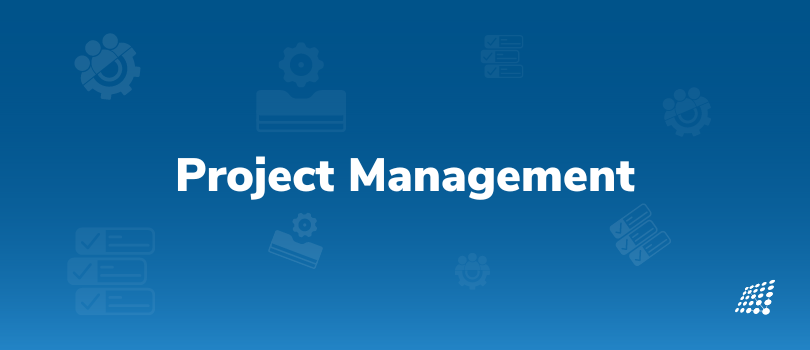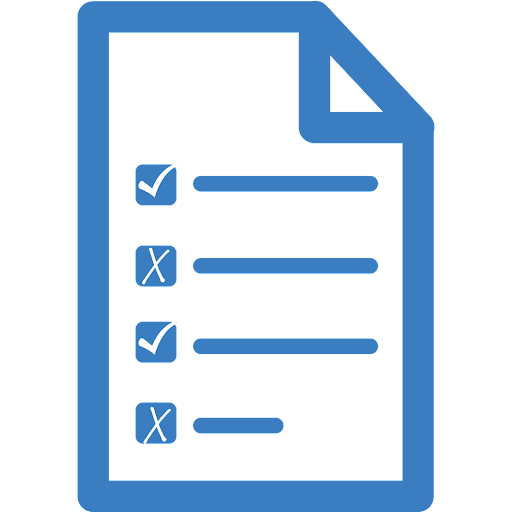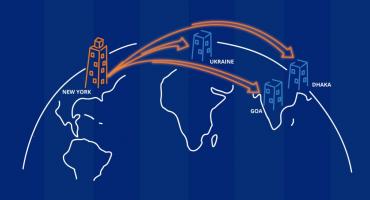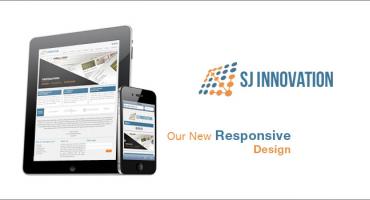7 Terrific Project Management Practices To Follow ASAP!

What separates an average project manager from a great one?
It’s not the number of responsibilities they can juggle without breaking a sweat (although to an extent staying in control counts of course!). Yes, what sets a well-organized project manager apart from the rest is how capable they are of following software project management best practices! How well they stay true to this while managing their resources and budget.
Different Project Managers have different ways of managing a project but if you want to be a cut above the rest, listen up! Here are 7 project management best practices in 2022 that can level up your project management style.
In this blog, we will talk about how to:
- Know the Objectives
- Set the Deliverables
- Establish a concrete plan
- Clarify project roles
- Communication is key
- Track project and budget
- Risk management is mandatory
1) Know the objectives

You don’t need to know the most trending ways from the project management best practices guide to guarantee success. Sometimes, the best lessons are simple. Sometimes, all it takes is knowing the right objectives.
Most of the time when a client sends his requirements through mail or Upwork, we do not derive a clear or complete idea about what the client is seeking. So what do you given this scenario?
- It's always advisable to schedule a call with the client and get the requirements sorted.
- If not, you always risk estimating the wrong requirements or understanding only half of the vision which could lead to a serious problem going forward.
- Firstly, you can end up delivering the wrong project. You can result in developing a project that is completely different from what the client needs.
- Secondly, if utilizing your resources to deliver undesirable results and delays occur, the project is bound to go over budget since additional time and energy are required to work on the actual client requirements now.
- It could be unnecessary double work which could lead to the project being way over budget.
2) Set the Deliverables

Know whether all the stakeholders are aware of the deliverables or else your project team and the client will end up with different estimations of the project’s scope. The result? Problems are bound to occur! So always pay attention to setting deliverables as part of project stakeholder management best practices.
- Gather all your stakeholders together and discuss what are the project deliverables. What are the goals? What is the expected outcome? What does “success” for the project mean? What are the risks to be aware of? What are the project performance limitations, budget, and time?
- Have a risk response team in place so all issues such as a stakeholder pulling funding, a key resource dropping out, or tech issues can be resolved.
- Your risk response team can be a blend of experienced and fresh team members who are capable enough to come up with contingency plans.
3) Establish a concrete plan

- Once the requirements from the client are crystal clear, plan and set the deliverables accordingly.
- Planning could be done by creating tasks and setting the sprints.
- Creating sprints gives us a clear idea of how to go about with the project and what you can expect will come through at a specified date.
- Based on this assumption, we can set a deadline for project completion.
- This works both ways — It helps us map out a structured plan to take up the next course of action and the client is also aware of what to expect from the team and what is the time frame required for fulfilling objectives.
4) Clarify project roles

Do you know what project management best practices achieving global excellence are all about? It has a lot to do with clarifying roles. Why? Well because:
- There could be several resources involved in a single project such as backend, front end developers, quality assurance engineers, and managers among others so clarifying roles assign certain tasks and responsibilities to specific people. This helps individuals in a team know what they are supposed to do.
- As a project manager, you can hold them accountable if the resource is unable to do justice to the roles he/she has been assigned.
- Clarifying roles fall under project schedule management best practices, especially during this scenario: Imagine two resources are working on a specific task but both do not work waiting for the other. Rather than creating chaos, clarifying project roles helps both the members know their respective responsibilities. Both will do what is expected of them as they know they would be held accountable for it.
5) Communication is key

Whether you look at project cost management best practices, project financial management best practices, or even project risk management best practices, one this for sure — Communication with the client and your team is absolutely essential!
- The client needs to be updated about the progress of the project every week. This can be done either by mail or weekly calls where the project manager discusses the sprint, live issues, or any other discussions that are related to the project.
- In this way, the client is also well aware of what is happening in the project. The client can check and update accordingly if they feel a feature has been implemented in a different way than what was expected.
- Interacting with your team can be done via slack messages, during scrum meetings, or any other unplanned meetings. As we know scrum meetings allow us to know the progress of the project on an everyday basis, we need to conduct additional calls as well to check in with the resources that are facing any issues concerning the project. Video conferencing through apps such as Zoom and Google Meet also works wonders as remote project management best practices to keep track of the latest developments.
6) Track project and budget

When the project has complex functionalities, it’s the role of a project manager to understand the project well.
- If the functionalities are not understood properly, the project could go haywire. To prevent chaos from unfolding, it’s vital to keep the project tasks in check.
- Budget tracking is making sure the project is done within the estimated budget. If not then this could be a loss to the company and can have an impact on your project management career as well.
- One of the major reasons why any project goes over budget is because the estimates are given by a senior developer and later a junior developer is given the responsibility to work on it.
- Since there could be a lot of things the junior developer may not be aware of hence they could take longer to implement the features. This can’t be known among project cost management best practices. It’s important to always keep track of the budget and make sure the project does not go above and beyond its spending limit.
7) Risk management is mandatory

Managing risks is one of the most crucial roles of a project manager.
- Also known as project risk management best practices, the project manager should always have a vision where they can predict what could be the possible risks involved that can hamper the project’s progress.
- There could be many risks such as resource holidays (vacations), health issues, and natural disasters impacting the productivity of resources like floods, junior resources, etc. So it’s important to know project resource management best practices.
- Making the client aware of all of these risks could be crucial if any of these risks cause problems later on during the project.
So there you go!
Effective project management is the ‘secret sauce’ of an agency’s success and can matter even more than creative thinking and clever ideas. By putting these project quality management best practices and techniques to the test, you can begin building and improving your business productively!
Contact our experts to learn how we can help you implement the best practices and strategies outlined in this article, and achieve greater success in your projects!

At the Heart of SJ Innovation: How we Coordinate our International venture

FRIDAY FUN ACTIVITY : A MUST AT EVERY WORKPLACE


